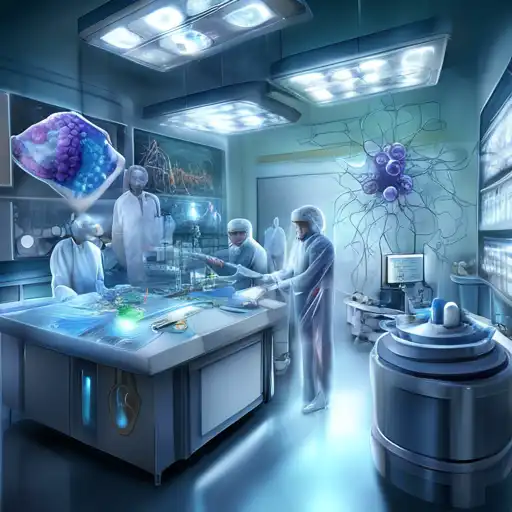Introduction to Nanotechnology in Medicine
Nanotechnology, the science of manipulating matter at the atomic and molecular scale, is setting the stage for a revolution in medicine. With its ability to operate at the same scale as biological processes, nanotechnology offers unprecedented opportunities for diagnosing, treating, and preventing diseases. This article explores how nanotechnology is becoming the next big thing in medicine, promising to transform healthcare as we know it.
The Promise of Nanotechnology in Healthcare
The application of nanotechnology in medicine, often referred to as nanomedicine, encompasses a wide range of tools, from drug delivery systems to diagnostic devices. These innovations are designed to interact with the body at the cellular level, offering precision and efficiency that traditional methods cannot match.
Targeted Drug Delivery
One of the most promising applications of nanotechnology is in the field of targeted drug delivery. Nanoparticles can be engineered to deliver drugs directly to diseased cells, minimizing side effects and improving treatment efficacy. This approach is particularly beneficial in cancer therapy, where it can reduce the damage to healthy cells.
Advanced Diagnostics
Nanotechnology also enhances diagnostic capabilities. Nanosensors can detect diseases at their earliest stages, often before symptoms appear. This early detection is crucial for conditions like cancer, where early intervention can significantly improve outcomes.
Current Breakthroughs in Nanomedicine
Researchers are continuously making strides in nanomedicine, with several breakthroughs already transitioning from the lab to the clinic. These include nanoparticle-based therapies for cancer, nanotechnology-based vaccines, and nanorobots designed for precision surgery.
Nanoparticle-Based Cancer Therapies
Several nanoparticle-based cancer therapies have received FDA approval, offering hope to patients with previously untreatable conditions. These therapies leverage the unique properties of nanoparticles to target tumors more effectively than conventional treatments.
Nanotechnology in Vaccine Development
The recent success of mRNA vaccines for COVID-19 has highlighted the role of nanotechnology in vaccine development. Lipid nanoparticles were crucial for delivering the mRNA into cells, showcasing the potential of nanotechnology in combating infectious diseases.
Challenges and Ethical Considerations
Despite its potential, the integration of nanotechnology into medicine faces several challenges. These include technical hurdles, regulatory issues, and ethical concerns related to privacy and the potential for misuse.
Technical and Regulatory Hurdles
The development of nanomedicine requires overcoming significant technical challenges, such as ensuring the stability and biocompatibility of nanoparticles. Additionally, regulatory frameworks need to evolve to address the unique aspects of nanotechnology-based treatments.
Ethical Implications
The use of nanotechnology in medicine raises important ethical questions, including concerns about equity in access to these advanced treatments and the potential for unintended consequences on human health and the environment.
The Future of Nanotechnology in Medicine
Looking ahead, nanotechnology is poised to play a pivotal role in the future of medicine. With ongoing research and development, we can expect to see more innovative applications, from personalized medicine to the regeneration of damaged tissues and organs.
Personalized Medicine
Nanotechnology could enable truly personalized medicine, with treatments tailored to the individual's genetic makeup. This approach could revolutionize the way we treat a wide range of diseases, making therapies more effective and reducing adverse effects.
Tissue and Organ Regeneration
Another exciting frontier is the use of nanotechnology in tissue and organ regeneration. Researchers are exploring how nanomaterials can support the growth of new tissues, offering hope for patients with organ failure or severe injuries.
In conclusion, nanotechnology in medicine represents a groundbreaking shift in healthcare, offering solutions that were once thought impossible. As we navigate the challenges and ethical considerations, the potential benefits for patients and society are immense. The future of medicine is nano, and it's arriving faster than we might think.
